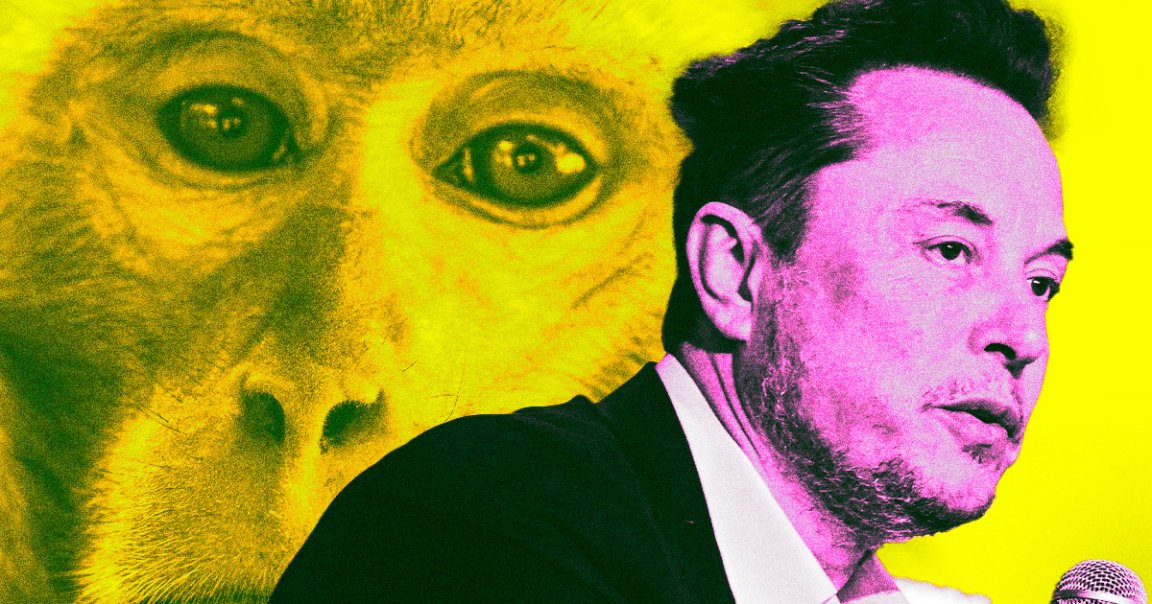
Elon Musk’s brain chip company has apparently, and against all odds, implanted its wares into a human — which is at least slightly terrifying, considering the fates suffered by many of the monkeys it’s experimented upon.
In a post on X-formerly-Twitter, which he owns, the brazen billionaire said that the unidentified human subject was “recovering well,” and that “initial results show promising neuron spike detection.”
Be that as it may — and until we see some sort of peer-reviewed proof, or at least proof of life, we just have to take Musk’s word for it — there’s been substantial controversy surrounding the brain-computer interface (BCI) company, including the way it handled its primate test subjects.
Last May, Neuralink announced on the Musk-owned social network that it had been granted Food and Drug Administration (FDA) approval to test its implants on humans, and a few months later said the agency was allowing it to begin recruiting for subjects.
Amid those announcements, however, were some jarring and grotesque reports about the fates that befell some of the company’s animal test subjects.
In a September report that dropped just a day after Neuralink announced that it was recruiting for its human trials, Wired reported that as many as a dozen of the rhesus macaques the company experimented upon suffered all manner of freakish symptoms, including brain swelling, partial paralysis, and self-harming behavior. Eventually, many of the monkeys had to be put down.
In one 2019 incident, a chip that was being implanted into one of the macaques’s brains “broke off” during the procedure. After the monkey woke up from its botched surgery, it scratched at the site of the implant, made itself bleed, and partially dislodged it. The wound, as it turned out, was infected, but because the implant blocked any treatment options, the macaque was euthanized.
Another 2019 experiment subject was witnessed pressing her head to the ground following implantation and picking at her surgery wound until it bled, eventually losing her coordination. She too was euthanized.
All told, some 21 percent of the company’s monkeys reportedly died because of brain implant issues.
It bears noting that these primates, which Neuralink acquired from the California National Primate Research Center at the University of California, Davis, were subjects early in the company’s history, with most of the experiments in question occurring in 2019 and 2020.
Nevertheless, information about the grisly details of those early trials appears not to have been shared with Neuralink’s investors.
As such, there has been pressure placed upon the Securities and Exchange Commission — a longtime foe of Musk’s, which has looked into various scandals at both Tesla and SpaceX — to investigate whether the company and its notorious owner misled investors by hushing up the macabre macaque situation.
While it remains unclear whether the SEC has opened a probe into Neuralink or plans to do so, it wouldn’t be the first time a federal agency has looked into its testing practices.
At the end of 2022, Reuters revealed that the US Department of Agriculture had opened an investigation into whether the firm violated the Animal Welfare Act. By July of 2023, however, the agency seemed to have closed its probe, saying that it found no evidence of animal research rule violations save for a 2019 incident that Neuralink itself reported.
In the world of experimental treatments and devices, animal trials often unfortunately do come with a death toll. Where Neuralink allegedly went wrong was failing to disclose all of that upfront to the public before asking for money — and before recruiting willing Musk stans to do risky brain surgery on them.
More on animals: Chameleon Bursts Into Pulsating Color Just Before Dying